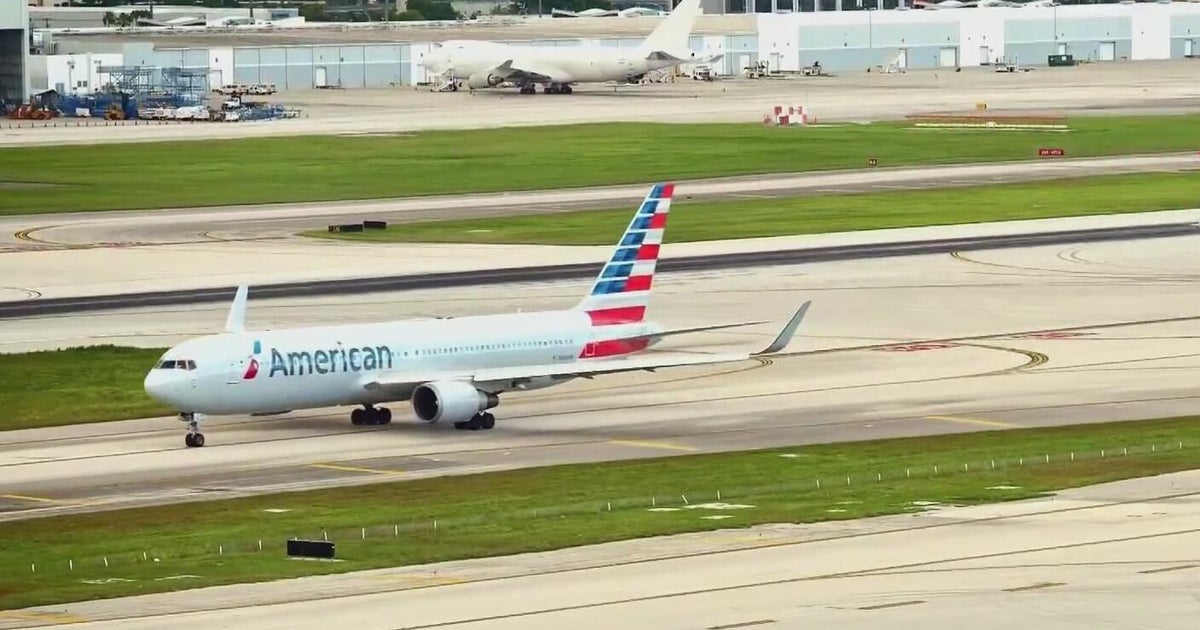After bumpy year, 2018 could be kinder to airlines
Who could forget the distressing, bizarre video that went viral showing an airline passenger being dragged off a United Continental (UAL) flight last year? That incident instantly created a pubIic-relations nightmare for United -- and the entire airline industry -- resulting in major policy changes against involuntary bumping and removal of passengers already seated on flights.
Such unpleasant headlines, combined with the usual industry woes like higher jet fuel prices, mounting labor costs and, for some airlines, high taxes on booked profits resulted in tough headwinds for the industry in 2017.
So it isn't surprising that many investors usually shy away from the airlines. But what is surprising is how well the airline industry is faring -- that's right -- and it should continue to exceed expectations in 2018. Some analysts are convinced that more people will fly in 2018, largely because of the improving U.S. economy, rising consumer confidence and a stock market that has been soaring to record levels.
"We see air-travel demand for both business and leisure customers likely to rise in 2018," said Jim Corridore, equity analyst at CFRA. He expects "growth in passengers outpacing overall economic growth" and "the overall travel-demand environment to remain healthy."
Corridore also expects the newly enacted federal tax cuts "to help the airline industry more than hurt it." Although most airlines, he noted, aren't paying cash taxes due to net operating loss (NOL) carry forwards, "they have been booking taxes on their income statements," as reflected in their operating earnings-per-share numbers. Airlines don't have R&D or many other types of write-offs (other than past losses) to reduce their income tax rate, the analyst explained, "so they were likely to be booking taxes at 34 percent to 36 percent."
The usual headwinds that confront the industry will slow capacity growth, according to several analysts.
"We expect overall capacity growth for the industry to be restricted in 2018, as most carriers are focused on growing airfares and industry yields," said Corridore. As a result, he predicted, capacity growth will be "relatively muted as the airlines will want to be careful to keep seats limited and not leave slack capacity, which could drive fare sales and price wars with competitors."
So planes will remain crowded and fly mostly full in 2018, the analyst predicted. The bad news for passengers is that baggage and other fees are likely to climb as the airlines search for revenue growth while keeping a lid on capacity growth. These unpopular "ancillary fees" will be a source of added "profitable revenue stream for the airlines and are likely to continue to grow in 2018," said Corridore.
Undoubtedly, passenger satisfaction is likely to deteriorate, he warned, because of the higher fees combined with rising fares, crowded planes and "an overall feeling that the carriers aren't offering as much as in the 'good old days.'"
On the plus side, analysts expect to see less overbooking by the airlines that often result in passengers getting bumped. That's partly due to the outcries over the many incidents in 2017 in which passengers were forcibly removed from overbooked flights.
Fuel prices should rise modestly in 2018, with CFRA's overall assessment that oil prices are likely to average about $58 a barrel for the year, roughly where they are now, but higher than the 2017 average price of roughly $50 a barrel. Corridore noted that the airline industry remains "solidly profitable and generated strong cash flows," although profits were likely to have fallen from the 2016 levels largely due to higher fuel costs last year.
But for 2018, "we see reason for optimism, including a good demand backdrop, solid economic growth and strong industry fundamentals," said Corridore.
So he believes shares of certain airlines would be tremendous investments in the current industry and economic environment. The airline stocks that he rates as "strong buys" are JetBlue (JBLU), American Airlines Group (AAL) and Delta Airlines (DAL).
"JetBlue should remain profitable through 2018 on good passenger travel demand," said Corridore in a recent report on the company's prospects. He pointed out that JetBlue, which operates a low-cost discount airline, has moved to accelerate capacity growth in "areas where it has a niche and focus on keeping unit costs controlled." And Corridore figures that its recent "slot additions at Reagan National Airport should help reaccelerate revenue growth."
Analysts note that JetBlue seeks to differentiate itself from other airlines by flying new aircraft and offering important incentives like low fares, leather seats, free satellite TV at every seat and preassigned seating.
JetBlue's stock, currently trading at around $22 a share, up from $18 in September, isn't far from its 52-week high of $24.13 a share. Corridore believes the stock will hit $29 in 12 months. He figures JetBlue earned $1.77 a share in 2017, and he projects earnings of $1.92 in 2018. Revenues are estimated to have risen 5 percent from 2016's $6.63 billion. For 2018, revenues are projected to leap 8.5 percent.
Corridore also has a "strong buy" recommendation on American Airlines, the largest commercial airline in the U.S. and one of the largest in the world. Its revenues of $40.1 billion in 2016 were expected to have grown by 4.1 percent in 2017 and rise by 3.8 percent in 2018. Corridore sees ancillary fees and higher cargo revenues aiding overall revenue growth.
American Airline's stock, currently trading at $53 a share, isn't too far from its 52-week high of $54.48 a share. Corridore figures the stock will hit $70 a share in a year because he expects the airline to benefit from improving pricing and strong demand.
"While a strong dollar and the exit of the United Kingdom from the European Union represent risks for international travel, we see these factors somewhat offset by lower travel costs for U.S. passengers in foreign markets, which will stimulate demand," argued Corridore. He sees "strong profitability and operating cash flows along with a robust share-buyback program offsetting high debt levels and slower revenue growth versus peers."
Delta Airlines, also one of the largest passenger airlines in the world, has been generating strong free cash flows relative to its peers. That has helped the company whittle down its net debt significantly to $6.1 billion at the end of 2016 from $15 billion at the end of 2010. But then it rose to $8.8 billion in the third quarter of 2017 as Delta shifted its focus to reducing pension liabilities.
But Corridore said he has a positive view on Delta's dividend (with a yield of 2.18 percent) and stock-repurchase program, as well as efforts to return cash to shareholders. Delta has a goal of returning 70 percent of free cash flows to shareholders.
Currently trading at $56.74 a share, Delta's stock is close to exceeding its 52-week high of $56.84. Corridore has a 12-month price target of $70 a share for the stock, "reflecting our positive view of Delta's execution and industry fundamentals," he said.



